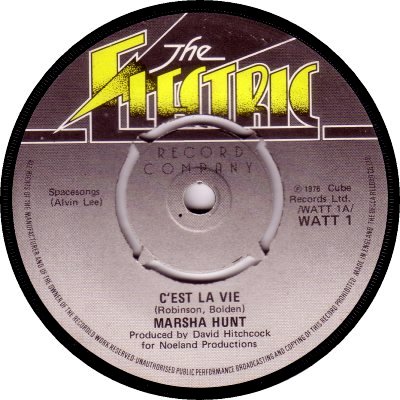
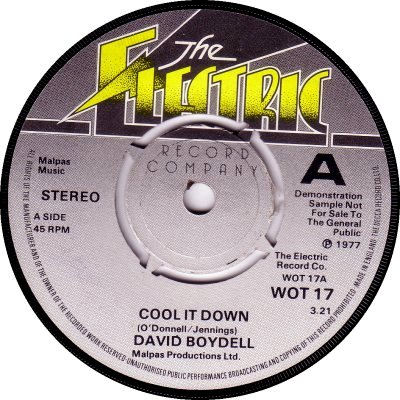
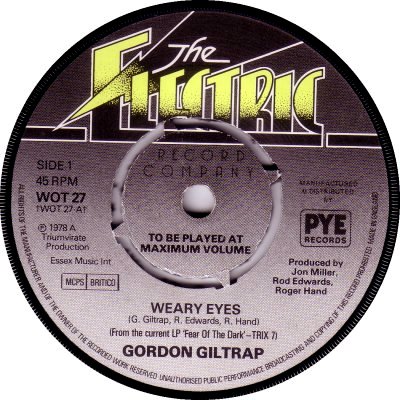
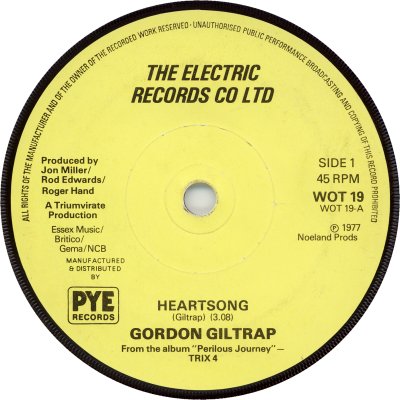
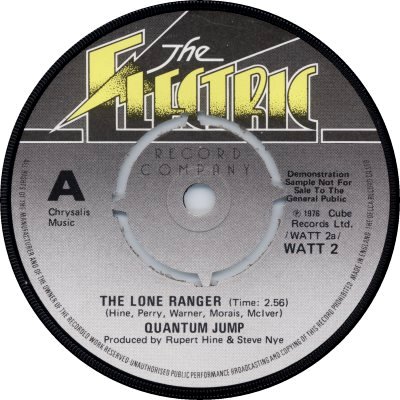
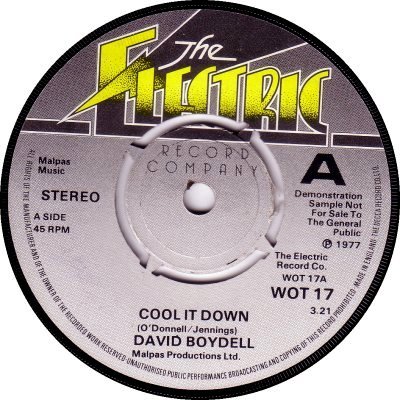
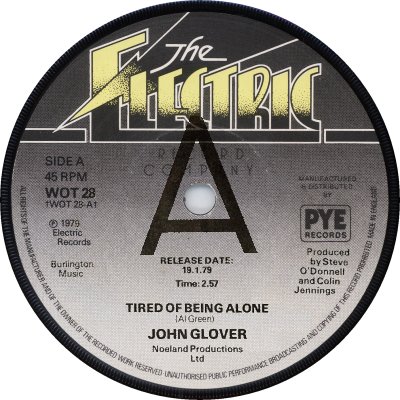
An offshoot of Cube Records (q.v.). Electric's first mention in 'Music Week' came in the issue of the 13th of March 1976, which reported that Cube was launching a new label for contemporary artists. The development was seen as necessary by managing director David Platz and label manager Jeremy Thorpe because of a feeling that over the years Cube had "lost its label identity, and its strongest material was now in its back catalogue." The Electric Record Company's policy was that it would use singles mainly as a means of promoting albums, but others with 'an appropriate contemporary flavour' would be released. Distribution would be by Selecta and manufacture by Decca, as was the case for the parent label. Initially catalogue numbers were in a WATT-0 series (1), but this led to problems with Virgin Records - Virgin were the distributors for a label called 'Watt', which used a WATT-0 series for its albums. According to 'MW' (27th March) Virgin suggested that the numbering be kept for the first two singles, as the labels had already been printed, but that it be changed for any others. Cube wanted to keep the series; Jeremy Thorpe was reported as saying that he didn't see why there should be any confusion, as Virgin's WATT-0s were LPs and Cube's were singles. Nevertheless, 'MW' of the 15th of May revealed that Cube had agreed to change the prefix, which on subsequent singles was WOT (2). The second single, 'The Lone Ranger' b/w 'Drift' by Quantum Jump, was pressed both before and after the change and can be found in both WATT-2 and WOT-2 forms.
Cube moved from Selecta to Pye in January 1978, signing a two-year licensing deal, and Electric naturally went with it; the agreement involved pressing and distribution as well as marketing. There were changes to the layout of the label but not the over-all design (3), though some copies of Gordon Giltrap's 'Heartsong' (WOT-19; 11/77), which had provided Electric with its first hit and was in the charts at the time of the changeover, can be found with plain yellow labels (4). Giltrap was to score a lesser success with 'Fear Of The Dark' (WOT-29; 1979), but the company's higest placing was achieved by a second issue of 'The Lone Ranger' by Quantum Jump (WOT-33; 1979), which made the No.5 spot. Sadly, however, Electric was destined not to last until the new decade. 'MW' of the 1st of December 1979 revealed that Jeremy Thorpe was leaving Cube / Electric to form a company with Max Hole of Criminal Records (q.v.). His departure coupled with the fact that the licensing deal with Pye was to expire shortly led to a decision to close the label down. 'MW' of the 8th December, which broke the news, also stated that David Platz was negotiating a deal for the catalogue; and that was the end of The Electric Record Company. The first two demos shown (5, 6) are from the Decca era, the third (7) from Pye. The discography below only covers the 1970s.
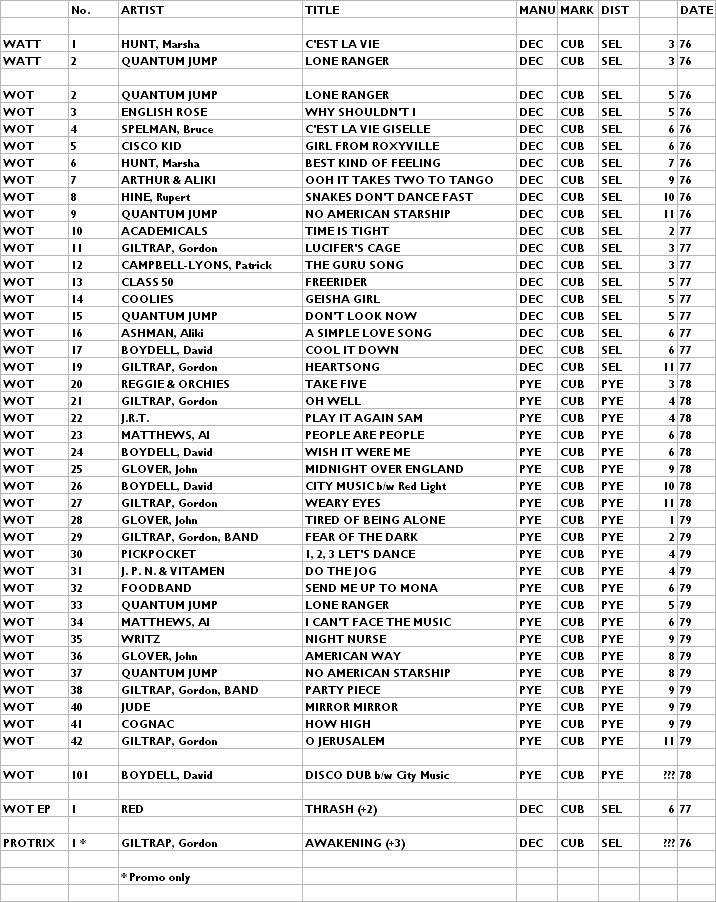


Copyright 2006 Robert Lyons.

